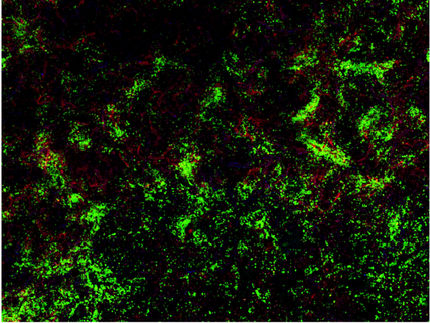Cornell's College of Veterinary Medicine develops protein tests to accurately diagnose pet food-poisoned dogs
While dogs keep dying from eating pet food tainted with aflatoxin, Cornell University's College of Veterinary medicine is announcing it has developed protein tests that accurately indicate a dog's liver failure caused by the toxin. In late December, some dogs from the Eastern and Southeastern United States have become either seriously ill or have died after eating dog food manufactured by Diamond Pet Foods. The dog food was tainted with aflatoxin. About 17 severe cases of aflatoxin poisoning came to the Cornell University Hospital for Animals.
The Protein C Activity Assay -- a human protein test that was modified at Cornell over the past three years for animal use -- is one of several tests Cornell veterinarians have been using to detect liver damage in seriously poisoned dogs. The blood test results are available within a day. Aflatoxin curtails the production of cholesterol and many proteins that profoundly affect blood clotting.
The Protein C Activity Assay indicates levels of protein C made by the liver. Dogs poisoned with aflatoxin have only 10 to 15 percent of normal amounts of protein C, says Marjory Brooks, DVM, of Cornell's Animal Health Diagnostic Center. "A progressive fall in protein C levels appears to be a sensitive indicator," Brooks says. This test panel including protein C is only available at Cornell. For testing, veterinarians draw blood from the dog and send it overnight to Cornell's Animal Health Diagnostic Center.
For detection of seriously affected dogs, Sharon Center, DVM, Cornell professor of veterinary medicine who specializes in liver function and disease, says a combination of tests should be administered. She suggests testing for the liver enzyme ALT to detect damage to the liver, serum cholesterol and total bilirubin concentration (bilirubin examines for jaundice) and the activity of the anticoagulant proteins antithrombin III (ATIII) and protein C.
Topics
Organizations
Other news from the department science

Get the life science industry in your inbox
By submitting this form you agree that LUMITOS AG will send you the newsletter(s) selected above by email. Your data will not be passed on to third parties. Your data will be stored and processed in accordance with our data protection regulations. LUMITOS may contact you by email for the purpose of advertising or market and opinion surveys. You can revoke your consent at any time without giving reasons to LUMITOS AG, Ernst-Augustin-Str. 2, 12489 Berlin, Germany or by e-mail at revoke@lumitos.com with effect for the future. In addition, each email contains a link to unsubscribe from the corresponding newsletter.




















































